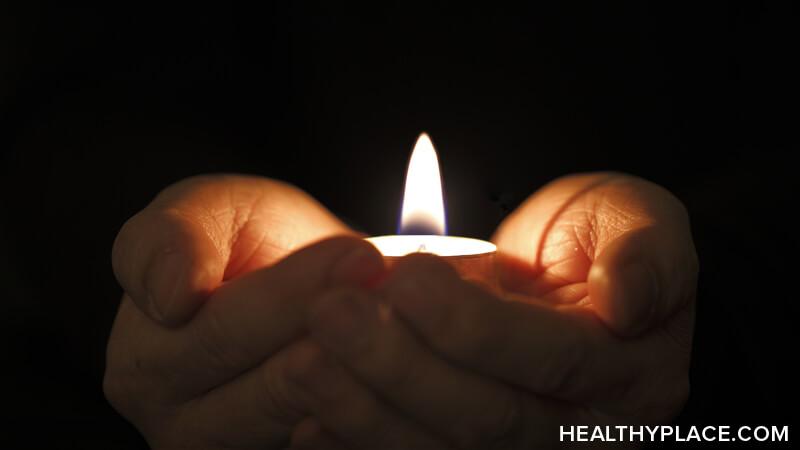Coping with the Suicide of a Loved One

The suicide of a loved one, or suicide in general, is a tough thing to talk about. Even sitting here typing, it is a triggering topic for me. Not only have I been close to suicide myself and wished for death more times than I can count, I have also had to deal with the suicides of a couple of people I have been close to. I can only imagine that for many of you out there, it is the same.
The suicide of a loved one catches us by surprise. It isn't the same as the lingering downturn of cancer or the expected end to a long life. It is sudden, unexpected, and no matter the circumstances, leaves survivors asking all sorts of questions. Why? How? Was there something I could have done? These questions linger long after our loved one is gone and while we may move on, we never really move past.
There is no one-size-fits-all approach to coping with the suicide of a loved one, just as there is no uniform solution to anything in life, but here are a few things that I can recommend as someone who has been on both sides of this horrific event.
The Suicide of a Loved One Isn't Your Fault
I am going to repeat this. It isn't your fault. It is natural to inwardly assign blame in an event like this. Was there something I didn't notice? Was there something I could have said? If I had been a better friend/family member/partner, would this still have happened? The bottom line is, once again, it isn't your fault.
Suicide is a choice someone makes for completely selfish reasons. This isn't to say that suicide is a necessarily selfish act. Rather, it is something in which someone simply decides that his or her own life is not worth continuing. It has nothing to do with you. In my darkest hours, I never lamented that I wished I had better friends or more attentive family members. They simply didn't enter into the equation. I only thought of the pain I was feeling and how wonderful it would have been to be free of it.
The Suicide of a Loved One Isn't a Cause for Embarrassment
Many people believe that the suicide of a loved one reflects poorly on them. It doesn't. Just as cancer can take the life of a person suffering from it, so too can suicide be the end of the life of a person suffering from mental illness. As much as it isn't your fault, it also doesn't reflect on you -- at all. The stigma of mental illness and suicide might still make people uncomfortable, but death is something to be mourned, and life something to be celebrated, no matter what form they take.
Use these moments not to squirm at speaking of a loved one's death, but rather to celebrate his or her life. What did this person mean to you? What were the good times, the funny times, the emotional times? If you feel the need to speak about the suicide, use it to start a conversation about mental illness and the incredible strides that we as a society need to take to better understand and treat it without the stigma currently attached. As so many loved ones start fundraising campaigns for the American Cancer Society or some similar organization after a disease takes their loved one from them, do the same for the National Alliance for Mental Illness (NAMI), the Depression and Bipolar Support Alliance (DBSA), or another organization dedicated to finding better treatments for mental illnesses.
Try to Empathize
This is hard with death in any form, but somehow it is something we struggle with to a greater extent with suicide. When a loved one finally succumbs to a dreadful disease, as much as we mourn, we are also grateful to a point that the pain he or she was feeling is over. We should make the same attempt to feel that way with suicide.
Suicide is harder to empathize with because it seems a conscious choice, and to a point it is. However, the relief from immense pain is still there and, while we may not ever understand the choice, we can still be grateful that our loved one doesn't feel such pain any longer. We can try to empathize with the journey our loved one made to reach that point and to learn from it.
None of these things is to say that coping with the suicide of a loved one will ever be easy or without an incredible amount of hurt and sadness. We still will question what happened and why. But we can try to remember not to blame ourselves, try to empathize, and attempt to turn our embarrassment into something positive.
If you feel you may hurt yourself or someone else, call 9-1-1 immediately.
If you need help with distressing thoughts (including suicidal thoughts), call the National Suicide Prevention Lifeline at 1-800-273-8255
For more information on suicide, please see our suicide resources here.
APA Reference
Berg, J.
(2018, September 13). Coping with the Suicide of a Loved One, HealthyPlace. Retrieved
on 2025, November 28 from https://www.healthyplace.com/blogs/relationshipsandmentalillness/2018/9/coping-with-the-suicide-of-a-loved-one
